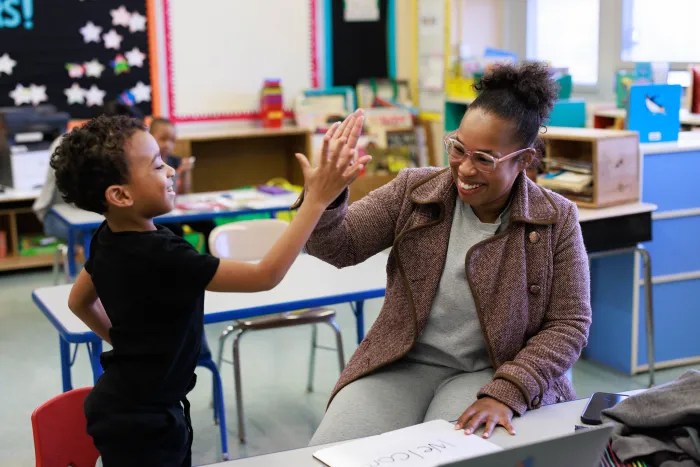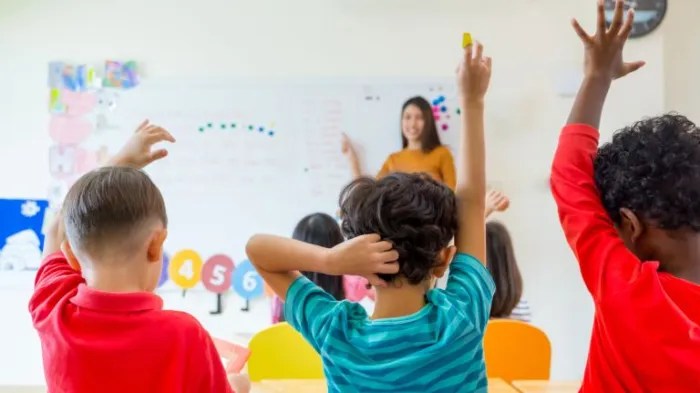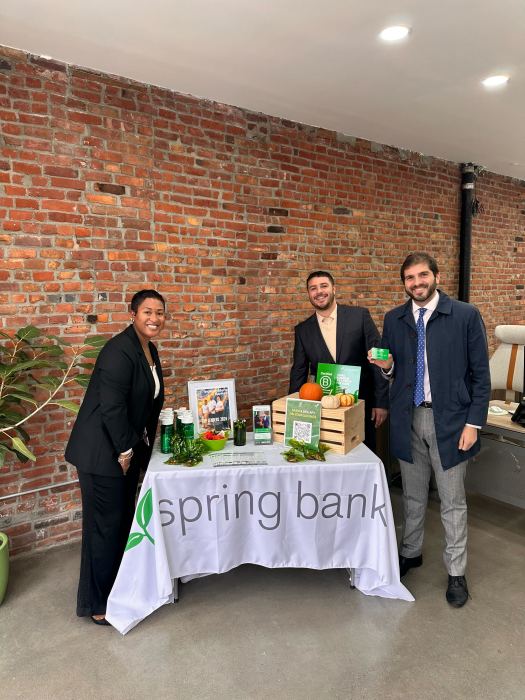Russia condemns “irresponsible” talk of nuclear weapons for Ukraine | Reuters https://t.co/bxxVo2Lb4n
— Michael Novakhov (@mikenov) November 26, 2024
Day: November 26, 2024
Russia condemns “irresponsible” talk of nuclear weapons for Ukraine | Reuters https://t.co/bxxVo2Lb4n
— Michael Novakhov (@mikenov) November 26, 2024
Cybersecurity failures expose gaps in justice for breach victims https://t.co/QcxLpPkHGF
— Brooklyn Eagle (@BklynEagle) November 26, 2024
Чарльз Спенслей «Пустой стул» pic.twitter.com/afHNk66FYM
— Художники и Поэты (@Xudozhnikipoeti) November 26, 2024
To help combat alarmingly low literacy rates and help underserved youth, the New York Community Trust awarded a $150,000 grant to the Literacy Academy Collective, a nonprofit dedicated to improving reading instruction for struggling students.
The grant will help the collective open its second public school, the Central Brooklyn Literacy Academy, in September 2025.
Education advocates — including Shawn Morehead, executive vice president of grants and chief program officer with the trust — say the introduction of Literacy Academy Collective schools can help be a vital bridge to universal literacy success in city schools.
Last year, according to education reports, just half of the city’s third through eighth graders achieved proficiency on state reading tests, with only 40% of Black and Latino children meeting the same standard..
The NYC Department of Education recently implemented a new reading curriculum to enhance literacy instruction. Still, learning experts say it requires further support to ensure adequate student outcomes, as education is not a one-size-fits-all approach.

“For years, the city was using an approach to reading instruction that had no real research base behind it,” Morehead told amNewYork Metro. “It was a little bit of, well, give them the books, and they’ll figure it out.”
According to Morehead, the broader citywide efforts funded by the trust aim to improve classroom reading instruction through teacher training and data analysis. They want to see improvements in students’ reading fundamentals, building a vocabulary-rich environment and preparing them for success in later grades.
School leaders will measure the program’s success through standardized assessments, statewide tests, and long-term indicators like high school readiness and advanced coursework.
“There are real processing differences in the way that [student’s] brain takes in what they see on a page and processes it, and so you have to teach in a way that addresses those differences,” she said. “I often advise that teaching reading is actually a science, which is what you’ll hear from all the government officials pushing the reading changes in the city. But it is, in fact, true.”

“People can support the collective by building awareness among families and communities about the real value in improving reading instruction, both broadly for all kids in the early grades, kids who process language differently,” Morehead said. “The more people support it, talk about it, understand it, the more kids are going to get what they need, not just in school, but in after school and at home and on the subway and all of those places where we interact with young people.”
Before opening the school, Literacy Academy Collective will enroll at least 32 students in a model classroom at P.S. 191 in Brooklyn for the 2024 to 2025 school year, with the expectation that at least 70 % of students will improve reading proficiency consistent with a year of instruction.
They plan to perfect teacher training and development tools through this trial-run classroom.
Prior to opening the school, Literacy Academy Collective will enroll at least 32 students in a model classroom at P.S. 191 in Brooklyn for the 2024 to 2025 school year, with the expectation that at least 70 % of students will improve reading proficiency consistent with a year of instruction.
The program hopes to close the literacy gap and empower the next generation by embracing research-based reading instruction and fostering community support.
“One of the things I think that’s really exciting about the Literacy Academy Collective is it was started by a couple of parents who saw a need in the system and actually worked really hard to figure out how to make a change,” Morehead said when discussing how the collective was formed. “It’s a lesson for all of us that even in our big city of 8 million people, if you see a problem, there are opportunities to make lives better for everybody in our communities and we should just look for them and seize them.”
A FLATBUSH FAMILY was aided by News 12 this week, after a $450 order of DSNY-required new trash bins for their home and church went awry.
The post Flatbush family left flabbergasted with eight incorrect garbage bins appeared first on Brooklyn Eagle.
We are monitoring winter weather that will impact parts of the state on some of the busiest travel days of the year.
I’ve directed state agencies to prepare & encourage New Yorkers to do the same.
Monitor your local forecasts & exercise caution if traveling for Thanksgiving. pic.twitter.com/gUNMZHySby
— Governor Kathy Hochul (@GovKathyHochul) November 26, 2024
ONGRESS NEEDS TO PROTECT SAFETY-NET HOSPITALS, Congressmember Yvette D. Clarke (D-9) urged in a bipartisan letter.
The post Brooklyn’s Rep. Clarke leads strong bipartisan call to advance bill protecting safety-net hospitals appeared first on Brooklyn Eagle.
ST. FRANCIS COLLEGE’S NURSING PROGRAM has been awarded two grants from the Mother Cabrini Health Foundation.
The post St. Francis College awarded $1.2M grant for its nursing program appeared first on Brooklyn Eagle.
Making money moves!
State Sen. Andrew Gounardes on Monday celebrated the soft opening of Spring Bank, the first retail bank in Red Hook in a decade, which will deliver accessible banking services to the neighborhood.
The new Spring Bank branch, located at 356 Van Brunt St., aims to improve access to essential banking services for residents and small businesses.
The opening follows more than a year of efforts by Gounardes and local stakeholders to address the community’s urgent need for banking facilities. Previously, residents had to leave the neighborhood for banking or rely on costly alternatives such as check-cashing services and prepaid cards.
“Red Hook residents shouldn’t have to leave their community for basic services like depositing a paycheck or opening a savings account,” Gounardes said in a statement. “With the opening of this bank branch, we’re ensuring that our Red Hook neighbors have the opportunity to grow and thrive financially right here in the community they call home.”

The introduction of a local banking option is expected to have a transformative economic impact on Red Hook, supporting entrepreneurs and providing much-needed financial services to the area.
Founded in 2007, Spring Bank is recognized as the first bank headquartered in the South Bronx in 25 years and the first Certified B Corporation bank in New York State. Its mission centers on promoting financial inclusion and serving underserved consumers and small businesses across New York City.
The senator’s office, in collaboration with the Spring Bank team, plans to launch an outreach initiative that includes creating a community advisory board made up of local organizations, businesses, and stakeholders. The board will foster ongoing dialogue with residents to address their financial concerns.
“Red Hook residents have long called for a local bank that supports local businesses and community banking needs,” said Michael Partis, executive director of the Red Hook Initiative. “We look forward to working with Spring Bank to connect with the Red Hook community.”
The response from residents has been overwhelmingly positive.
Karen Blondel, tenant association president of the Red Hook Houses West, praised the development.
“As the largest public housing community in Brooklyn, Red Hook has too often been overlooked for essential resources like banking services,” she said.
A formal ribbon-cutting ceremony to mark the official launch of Spring Bank is scheduled for January.
